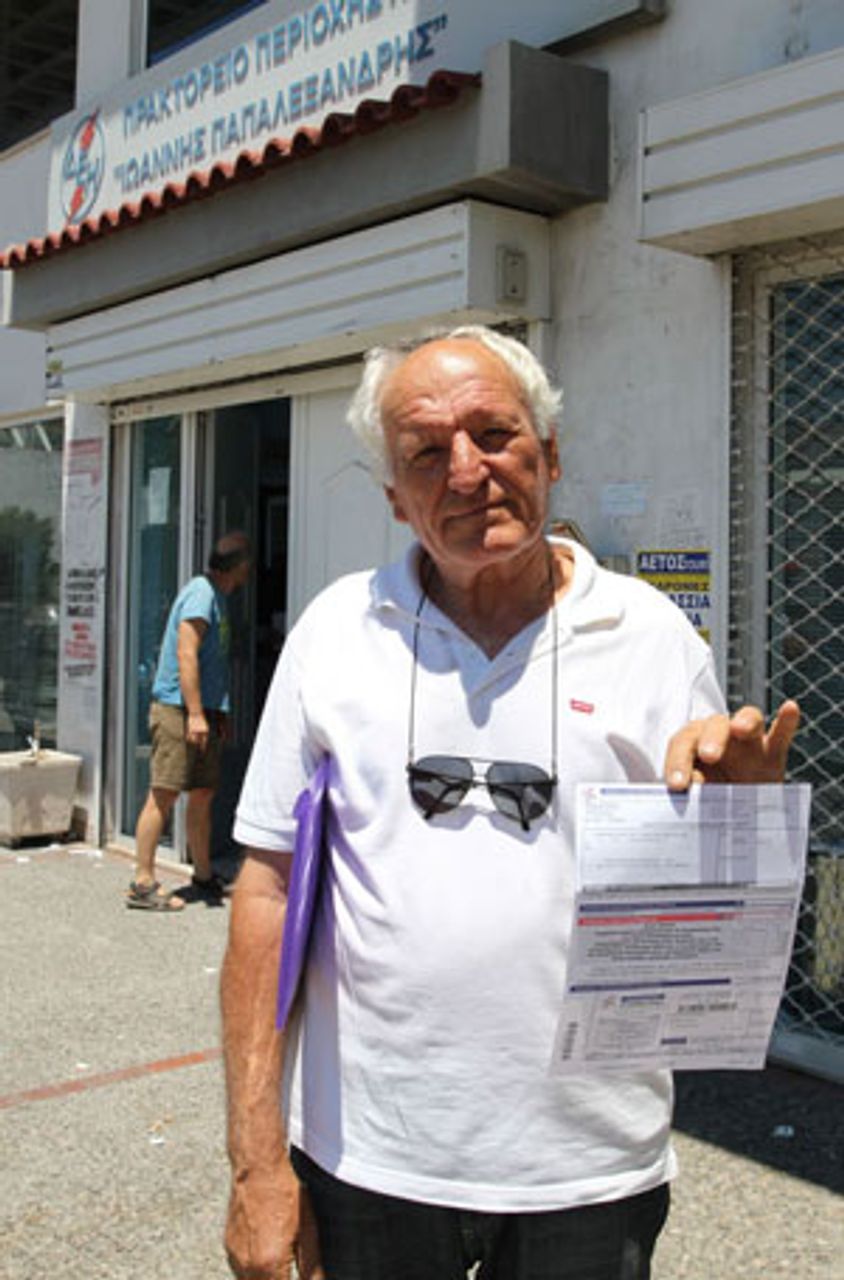The social hardship being imposed on an already poverty-stricken Greek population is without parallel in post-war Europe. Each day one reads heart-rending accounts of the appalling consequences of the austerity measures of the Troika—the European Union, International Monetary Fund and European Central Bank.
Nowhere have the cuts been as brutal as in the health sector. Under the terms of the first memorandum agreed with the Troika, health spending was gutted by more than 10 percent. Under the second, agreed in March, a further cut of €1 billion (US$1.3 billion) was made.
Many people who used to pay between 10 and 25 percent for prescription drugs, including those for heart conditions and cancer, now have to pay the full price. They can apply for a refund from social insurance funds that are members of the National Organisation for Health Care Provision (EOPPY), but the likelihood of ever getting the money back is slim. EOPPY, recently created, was a product of the rationalisations demanded by the Troika and is now in a state of collapse, unable to pay back patients when they present receipts for medicine.
In April, the government suspended payments to EOPPY, on which pharmacists rely for funding to prescribe drugs.
The effect on the public health service has been devastating. Two weeks ago, six state hospitals reported they had lost, indefinitely, supplies of gauze, syringes and other basic items. Their suppliers claimed they had not been paid for more than a year and a half.
One hospital administrator told the Financial Times, “We used to provide drugs for all patients receiving treatment, but we’re so squeezed now that we ask them to bring their own supplies of prescription drugs.”
At a press conference June 11 in Thessaloniki, people with cancer, multiple sclerosis, kidney ailments, thalassemia, diabetes and other chronic conditions spoke of their plight.
Michalis Tsakantonis, an unemployed cancer patient with diabetes and a weak heart, said he could no longer afford to buy the drugs he needs. According to the Athens News, he is “unable to get a pension because he is short 99 days’ worth of insurance stamps. He has already had his electricity cut off, meaning he can no longer operate the assisted-breathing device he requires.”
The general secretary of the Greek society for MS patients, Dimitra Kontogiann, said, “Our basic medication costs up to €1,000 a month, apart from the other drugs that we got for free. Now you have to begin a marathon in order to get one box of drugs and as soon as you find them, you’re filled with anxiety about whether you can get the next box.”
Another measure enacted in order to ensure that the working class pays for the debt crisis is the imposition of a national, regressive, property tax on homeowners. Around 80 percent of people in Greece own their homes. The property tax was imposed via electricity bills with the threat that if it were not paid, the electricity would be cut off. The measure was legislated by the social democratic PASOK government.
Official figures reveal that taxpayers and property owners have to pay, this year alone, the second instalment of the property tax for 2011, the tax for 2012 and one tax instalment for 2013. For an owner of a 100-square-metre flat in an average value zone in Athens, this equates to a total amount of around €2,000 in additional taxes.
For many the tax was the last straw, with hundreds of thousands refusing to pay it nationally. By February, according to the power workers’ union Genop-Dei, 1.5 million bills had passed their due date. A further 250,000 had gone beyond the 80-day threshold, under which the government legislated it could cut off the electricity supply. As a result, 50,000 orders for cutting off electricity supply to households were issued by the state power company, DEI.
Due to the fact that many DEI employees refused to cut off households, 20,000 shut-off orders were passed to private subcontractors. As DEI and the government have not released any official figures, it is not known how many people have had their electricity disconnected.
In January the Finance Ministry, then under PASOK’s present leader, Evangelos Venizelos, feigned concern about the impact of the tax. But far from exempting anyone from paying or reducing it, they placed the onus on taxpayers to prove they didn’t have the means to pay.
By March, the government had collected more than €2 billion from the tax. That month, in response to a number of lawsuits from taxpayers, the high court ruled that cutting off electricity for non-payment was unconstitutional. However, the ruling directed the state to find other forms of punishment for non-payment, such as fines.
 Georgos
GeorgosOn Monday, World Socialist Web Site reporters spoke to a number of residents of the working class district of Peristeri in Athens about Sunday’s election and the impact of the social crisis on their lives.
Georgos sells bread for a living from a handcart and told us he had previously been a mechanic for 25 years. He then owned a tavern for eight years, but that went bust as a result of the recession. Georgos now has a low income and his wife works as a cleaner. The family is one of many that had their electricity cut off.
Georgos regularly sets up his stall at the unemployment office and said the number of unemployed was a lot higher than the official figures of more than 20 percent for adults and 50 percent for youth. “A lot of people come here and might get some work for two months and they get included as employed,” he said. “But in two months they are back here again, unemployed.”
 Yannis
YannisIaonna was on her way to the local DEI office, where she was attempting to avoid an electricity cut-off because of unpaid bills. She said, “I used to work in a small private business and am now unemployed and so is my son, who has graduated from university. My husband works as a taxi driver and has to finance the whole family with his small income.”
At the DEI office a queue of people with electricity bill queries had formed inside the entrance. An indication of the mounting social anger was the presence of a private security guard outside the entrance to the building.
Yannis, a pensioner, said, “I came here today and they told me I had to pay this €600 bill on June 24. I told them I get my pension on July 1 so I can’t pay anything now. Even then I can only pay €50. They said, ‘No you have to pay now’. So I just left and I said I won’t pay it. So if they come to cut off my electricity I will try to stop them.”
